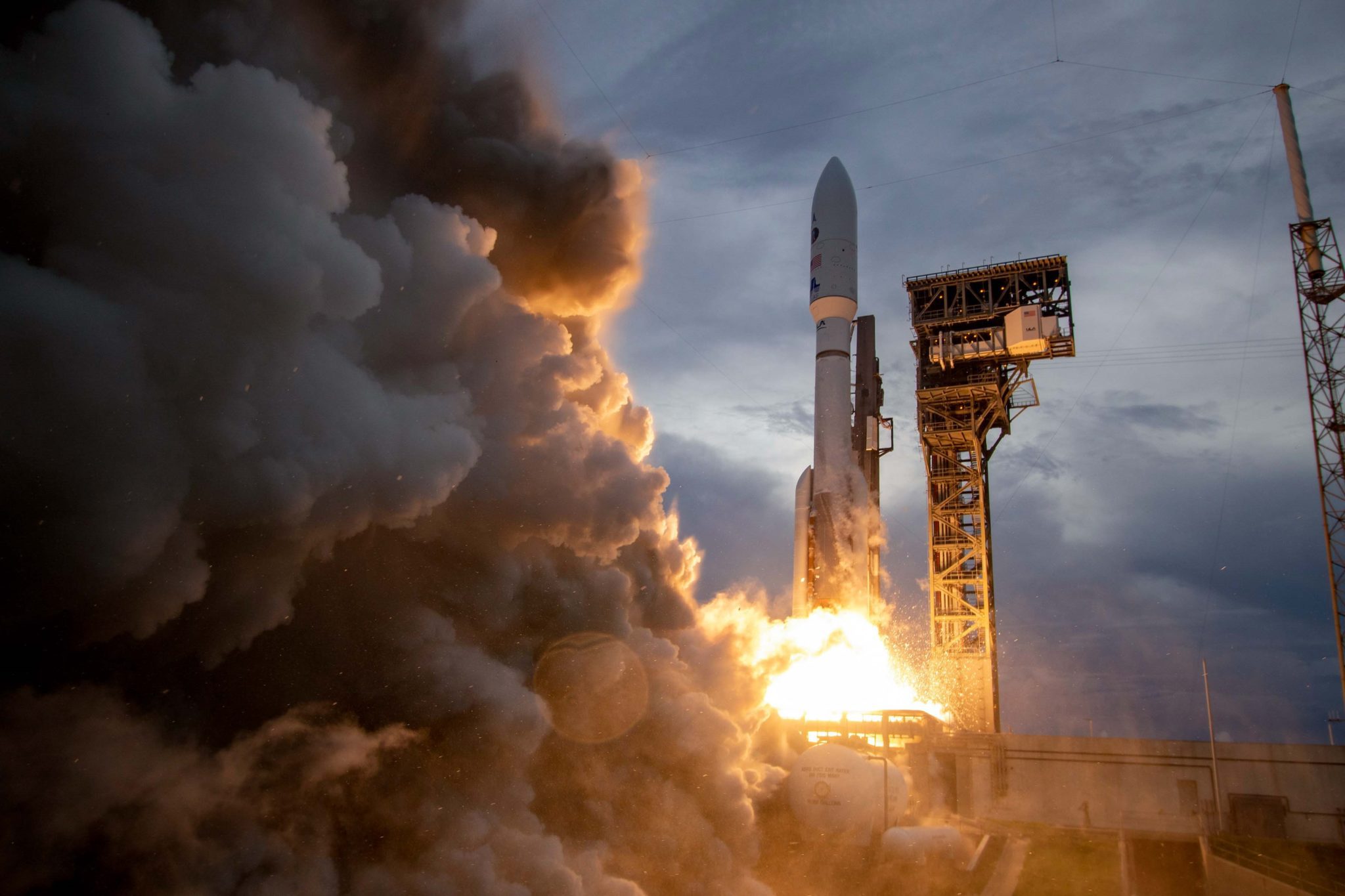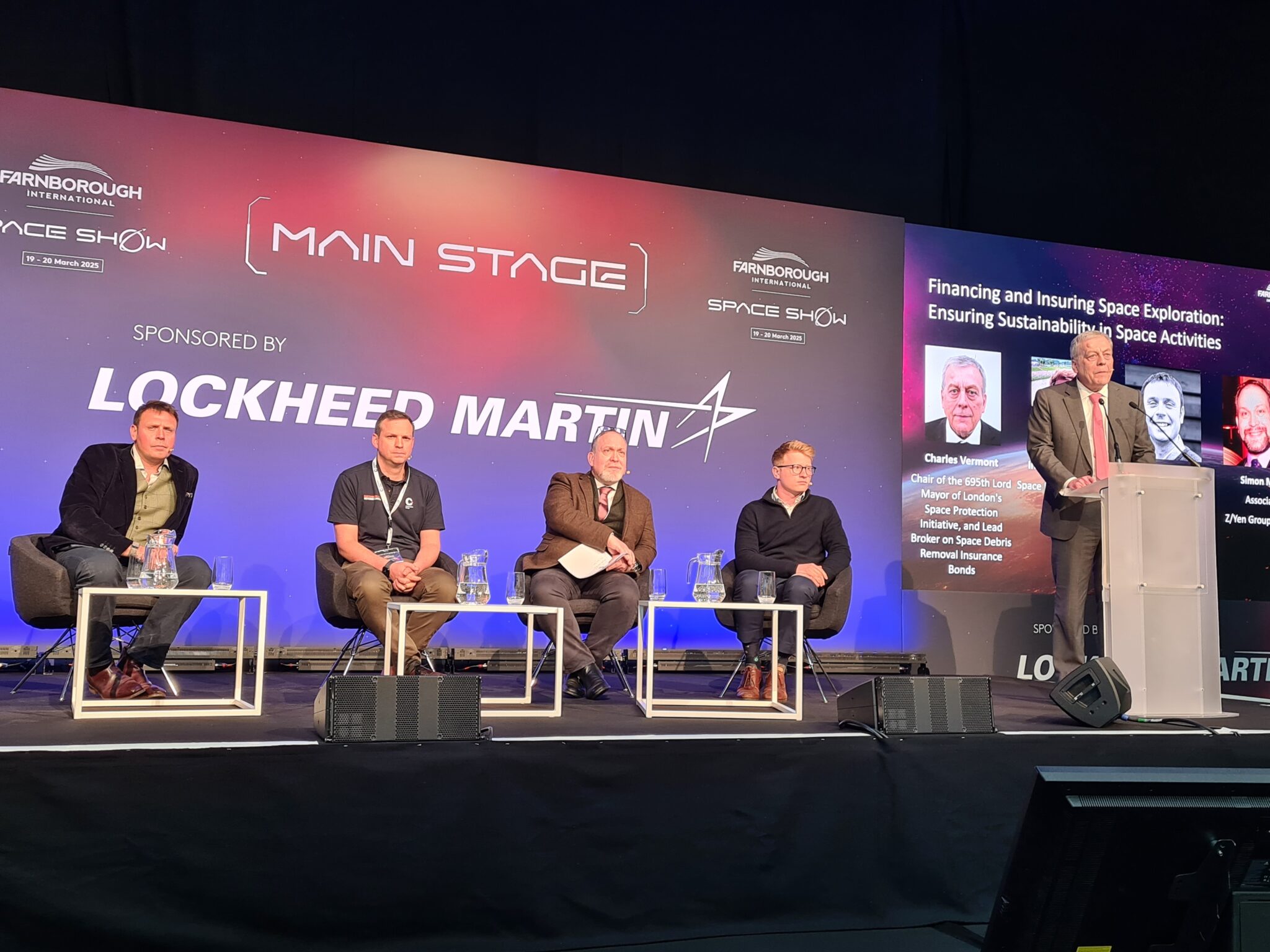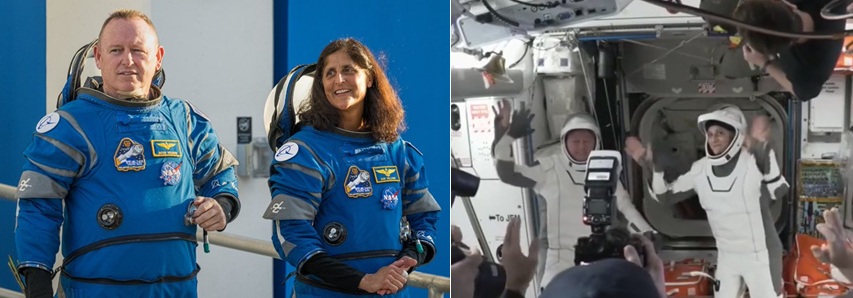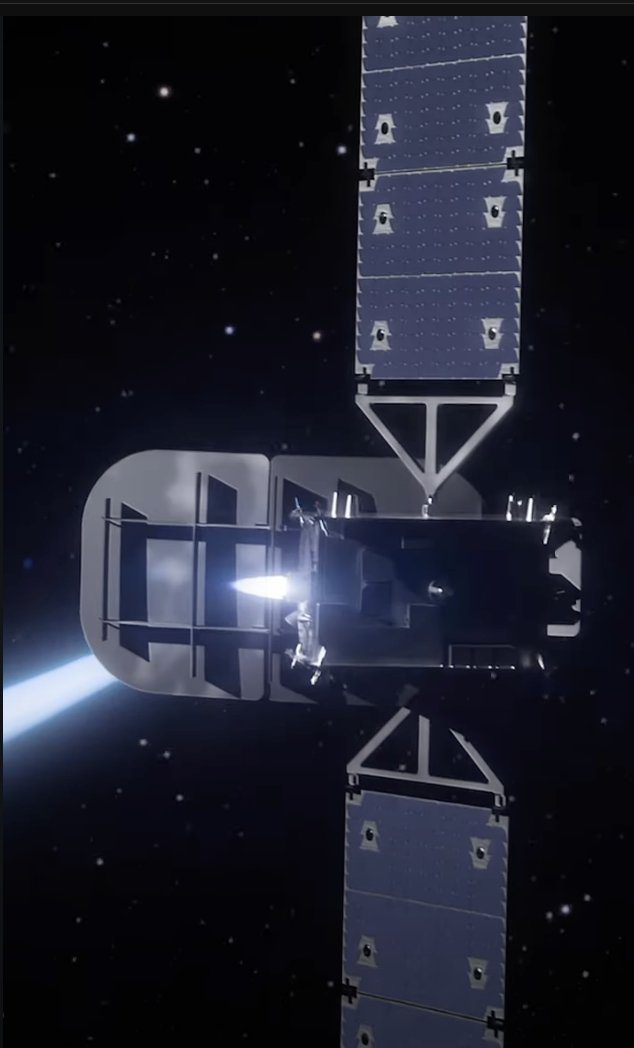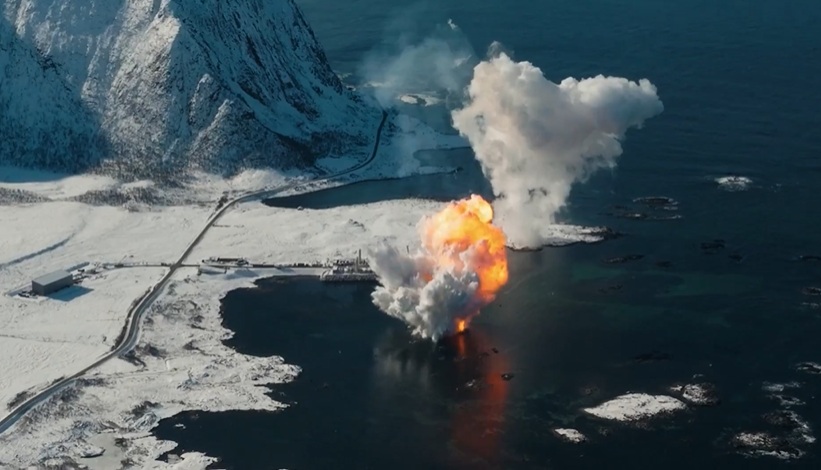The United Launch Alliance (ULA) successfully launched an Atlas V 541/RL10C-1/GEM-63 launch vehicle from Cape Canaveral, USA at 2315 GMT on 1 July 2022 on behalf of the United Space Force’s Space Systems Command’s USSF-12 mission. The rocket was carrying two payloads the USSF-12 2 and Wide Field of View (WFOV). It used the standard RL10C-1 engine for its Centaur upper stage, plus four GEM-63 solid rocket boosters to augment its RD-180 powered CCB main stage.
The WFOV is an early warning satelite testbed for the USSF Space Sensing Directorate’s Next Gen Overhead Persistent Infrared program (OPIR). Sponsored by Space Systems Command and managed by the NASA Ames Research Center, the mid-sized WFOV spacecraft is based on Millennium’s AQUILA M8 affordable platform series and hosts a transformational OPIR six-degree staring sensor developed under a separate contract by L3Harris Technologies. The 3 metric ton WFOV testbed is designed for a 3- to 5-year life.
The USSF-12 2 is a propulsive ESPA ring shaped bus hosting multiple payloads the Defense Department’s Space Test Program. The launch vehicle was charged with taking both spacecraft payloads all the way to geosynchronous orbit via a transfer orbit in a 6 hour multi-burn flight.
The launch had been delayed by bad weather from its originally planned launch on 30 June.
Corrected for rocket variant.

